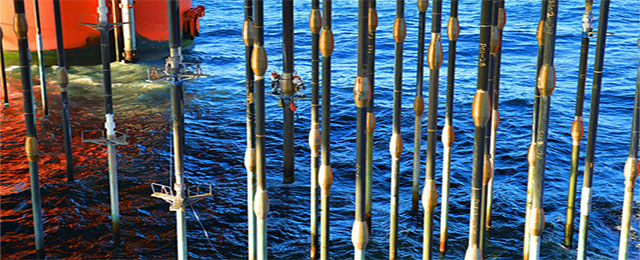The International Energy Agency (IEA) predicts the United States will surpass Russia as the world’s largest gas producer and Saudi Arabia as the world’s largest oil producer by 2015 and 2020, respectively.
The catalyst in this reversal of fortunes is the ongoing “shale revolution,” where technological advances, flexible policymakers, and the high price of oil permit cost-effective hydraulic fracking in order to capture natural gas that is trapped within subterranean geological formations.
The shale boom is one piece of a rapidly evolving set of circumstances that has drastically altered the global energy landscape as countries around the world look inwardly for new indigenous energy sources. The US’ dream of energy independence from the Middle East — something that has haunted it since the Organization of the Petroleum Exporting Countries (OPEC) first flexed its collective muscles during the 1973-74 Arab oil embargo — may finally become a reality.
But where does this leave America’s NATO allies in Europe, where reliance on Russian hydrocarbons has become the uncomfortable norm? Could a similar shale revolution reach the continent and loosen Moscow’s grip on European consumers?
Europe’s Dependency on Russia
The shale boom certainly has the power to alter Europe’s tenuous energy security position. Current studies confirm the existence of large shale deposits across the continent with the potential to radically transform Europe’s external energy requirements.
An increase in localized production would shift dependence and decrease the exorbitant prices that European consumers pay for energy. Currently, electricity costs in Europe are roughly triple American prices and double Japanese prices.
At the moment, Europe (EU-27) is the largest energy importer in the world. According to Eurostat, in 2010, Europe imported 52.7% of its total energy, a 6% increase since 2000. Of that, 84.3% and 62.4% of its oil and natural gas needs were imported, respectively.
Europe’s neighbor to the east, Russia, is the single largest exporter supplying 35% and 32% of the continent’s oil and gas needs. The dependence on Russian fossil fuels grows the further east you look. This dependency has allowed Moscow to dictate prices and hold European consumers hostage, most notably during a number of high-profile pipeline cutoffs over pricing disputes.
The threat of Russian petropolitics looms large once again over the ongoing standoff in Ukraine and Crimea.
Moscow is well-aware of the leverage it holds over European consumers. The economic costs in Europe would be staggering if Russia were to shut its pipelines off — especially in Europe’s fragile economic condition.
Russia would certainly take a massive hit as well, but President Vladimir Putin is well-aware that he can wait far longer than Brussels ever could.
That strategic advantage has prevented any European nation that has close economic ties to Russia from falling in line with Washington in enacting severe sanctions against Moscow. For why would you anger the partner who supplies the gas necessary to keep an electric grid online, or the partner who is such a lucrative customer for a variety of services from banking to armaments?
Read the whole article here






Be the first to comment on "Shale and European Energy Security"